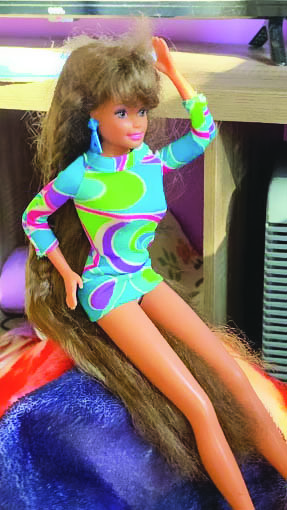Dear Dub: “Barbie” and Feminism
While some of you may have met her at Java, our proclaimed house president in the Dub is a vintage Barbie named Kesha, factorially known as “Totally Hair Barbie” from 1991. While we believe Kesha is a feminist icon, this isn’t the case for the majority of Barbies that we see on shelves today. With the release of the new “Barbie” movie, the topic of whether or not Barbie is a feminist is back in question. Although I think the “Barbie” movie did do some really good things to bring feminism back into the conversation, there are a few things that made the movie feel a bit fallen short.
Firstly, I would have liked to see the movie portray intersectionality a bit better; there was a lack of inclusivity when it came to gender expression. We were only given “Weird Barbie,” which sat a bit uncomfortably with me; having the only character that showed their own individuality being referred to as “Weird Barbie” felt a bit far away from the point they were trying to make. Referring to the character as weird Barbie shows how Barbie Land reinforces and actively cultivates arbitrary gender norms.
As far as the movie plot goes, I also felt as though the movie could have gone with a better approach; the aspect of the movie that seemed to be seen as controversial was the idea that Barbie Land was an alternate reality in which the roles were reversed with women being the oppressors and men being the oppressed. While I thought that this topic was an interesting idea that could spark some productive conversations about how we could adapt our society to have more equality between different gender roles, the only conversation this seemed to strike was confused feelings by the fact that men were inferior to the Barbies. Another issue that comes to mind is the white feminism that is portrayed in “Barbie.” While the movie had attempted to shift the balance of “Barbie” by having the characters of Gloria (America Ferrera) and Sasha (Ariana Greenblatt), a mother and daughter duo trying to fix their relationship while also helping Barbie save Barbie Land, most of their purpose of the movie was lost in pushing Barbie’s self-actualization; which makes their entire purpose about propping up a white character’s story. Overall, I believe “Barbie” could have had improvements to make it a more intersectional feminist piece, but as is, I believe it was a step in the right direction.



